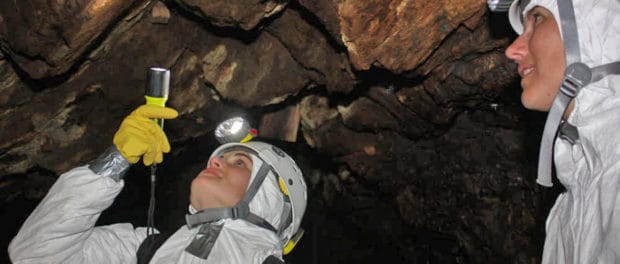
Fieldwork involving bats is being cut back due to efforts to contain the novel coronavirus.
©Gary Peeples/USFWS
OVID-19 has affected everyone, and wildlifers are no exception. In this series, TWS is looking at challenges facing the profession due to the pandemic.
Biologists in Arizona became concerned last year when they found the fungus that causes the deadly bat disease white-nose syndrome in low but detectable levels at the Grand Canyon. This year, they planned to increase surveillance for the fungus — there and throughout the state — to see if it was still present and whether or not it was increasing.
Instead, that work has been suspended due to efforts to curtail the spread of COVID-19.
Read More








